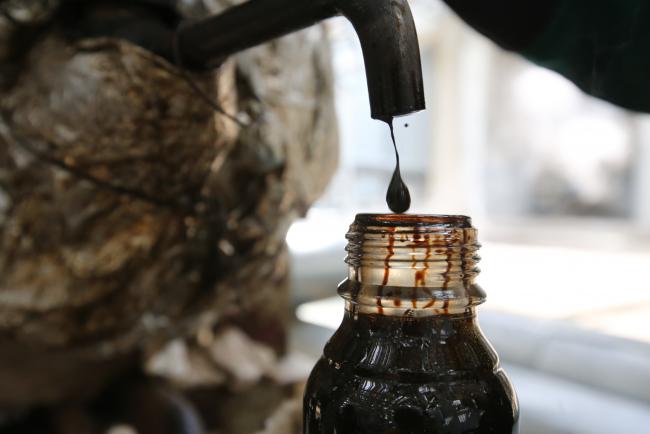(Bloomberg) -- Oil ended the week on a rebound as Saudi Arabia moved to dissipate doubts that Russia is ready to extend output curbs.
Futures rose 2.6 percent in New York on Friday after Saudi Arabia’s Energy Minister Khalid Al-Falih said OPEC should announce an extension of the cuts when it meets on Nov. 30. But that wasn’t enough to completely erase losses from the past few days, when uncertainty over a deal and surging U.S. production set the tone. Prices were 0.3 percent lower for the week, snapping the longest streak of weekly gains in a year.
"Ahead of the OPEC meeting, we’re going to see a little bit of volatility," Gene McGillian, a market research manager at Tradition Energy in Stamford, Connecticut, said by phone. "Going forward, the market needs to keep seeing that the fundamental picture is continuing to tighten."
Oil’s rally to the highest in more than two years last week faltered as Russia is said to be hesitant to commit to a decision on the cuts so soon, suggesting OPEC wait until closer to the deal’s expiration at the end of March. U.S. crude output gained this week to the highest in more than three decades, according to government data. Adding to the tension, the International Energy Agency said milder-than-normal winter weather is putting a brake on demand growth.
West Texas Intermediate for December delivery settled $1.41 higher at $56.55 a barrel on the New York Mercantile Exchange.
See also: Ecuador Won’t Ask OPEC for Exemption on Oil Production Cut
Brent for January settlement closed 2.2 percent higher at $62.72 a barrel on the London-based ICE Futures Europe exchange. Prices are down 1.3 percent this week, the first weekly drop since the start of October. The global benchmark was at a premium of $6.01 to January WTI.
The Organization of Petroleum Exporting Countries is unlikely to reduce excess oil inventories to average levels by the time the current supply deal expires, Al-Falih said Thursday. The kingdom has had extensive consultations with Russia and the minister said he feels “fully convinced” the country will be “fully on board” when a resolution is made.
Oil-market news:
- Oil exports from Iraq’s northern Kurdish region to Turkey rose to 254,000 barrels a day on Friday, according to a port agent who asked not to be identified because the information is private.
- Iran’s crude oil production capacity will likely rise to 4.4 million barrels a day by 2022-23, FGE Chairman Fereidun Fesharaki wrote in an emailed note on Friday.
